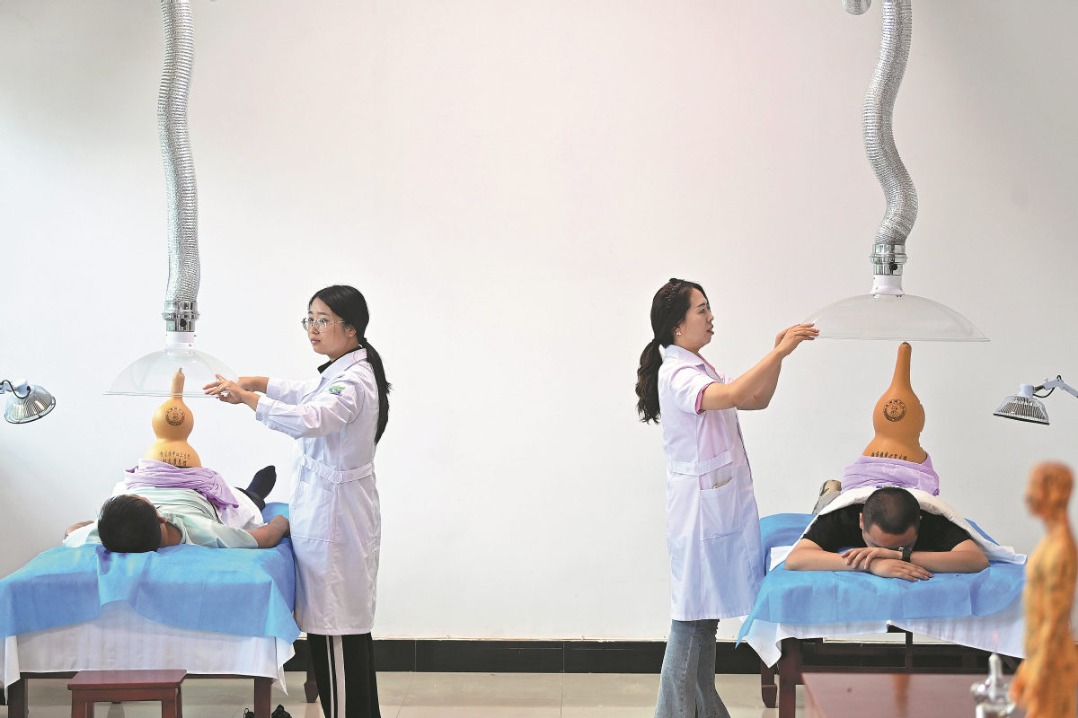Record household deposits stir calls to stimulate domestic consumption
By SHI JING in Shanghai | China Daily | Updated: 2022-07-14 09:17

Although China's household deposits have risen to a record high amid multiple market uncertainties, more stimulative policies should be introduced to boost domestic consumption, which is crucial to economic growth, experts said on Wednesday.
According to data released by the People's Bank of China on Monday, renminbi deposits, including household deposits, increased by 18.82 trillion yuan ($2.8 trillion) to an outstanding amount of 251.05 trillion yuan in the first half of the year.
The rise this first half was higher by 4.77 trillion yuan compared with that in the same period of 2021.
Household deposits alone rose by 10.33 trillion yuan in the first half, a record and exceeding the 9.9 trillion yuan increase registered for the whole of 2021.
Retail sales of consumer goods in the first five months of the year, which show the overall consumption strength, contracted 1.5 percent year-on-year to 17.17 trillion yuan. The year-on-year decline of the indicator was 11.1 percent in April and narrowed to 6.7 percent in May.
Ming Ming, chief economist of Citic Securities, said the significant surge in Chinese household savings is correlated to sluggish consumption. As people cut their expenditures, part of the income will naturally become savings.
COVID-19 resurgence in some parts of China is another cause, which has resulted in sliding incomes among some Chinese people and rising unemployment. Savings as a precautionary measure will therefore rise, Ming said.
While savings have been increasing, Chinese people's investment interest has been subdued to some extent, as only 17.9 percent of the people surveyed by the central bank in the second quarter said they would like to "increase investment", down 3.7 percentage points from the previous quarter.
This is partly due to the resurgent COVID-19 in some parts of the country, which has resulted in people's preference for liquidity over investment and expenditure for the time being, said Ruan Jianhong, a PBOC spokeswoman, at a news conference in Beijing on Wednesday.
Higher volatility in the capital market over the past few months has also affected people's risk appetite. But their willingness to invest and consume will gradually recover as the epidemic comes under better containment, she said.
Dong Ximiao, chief researcher with Merchants Union Consumer Finance Co Ltd, suggested that more effective measures should be taken to nurture mid-range to high-end consumption and expand the consumption of durable goods like automobiles. The process of consumption upgrade should be advanced, he said.
He also stressed that epidemic control and economic growth should be better balanced to minimize the negative impact on business and life. That will help stabilize expectations of companies and consumers.
Consumption accounts for 40 to 50 percent of China's economic growth, said Ethan Wang, head of investment strategy for wealth management at Standard Chartered China. At present, detailed policies to boost car purchases have been introduced, including lower purchase taxes.
More policies to stimulate overall consumption can be anticipated in the second half of the year, especially when economy-stabilizing policies announced in the previous months start to take effect, he said.
TF Securities analysts estimated that deposits account for 20 percent of Chinese people's assets, while housing and equities take up 40 percent and 30 percent, respectively. There is still room to direct more household savings to sectors like real estate.
Measured by the GDP in 2021, at least 1.14 trillion yuan would be released into the market if China's household savings rate can be lowered by 1 percentage point, said the TF experts.
Zhou Lanxu contributed to this story.
























